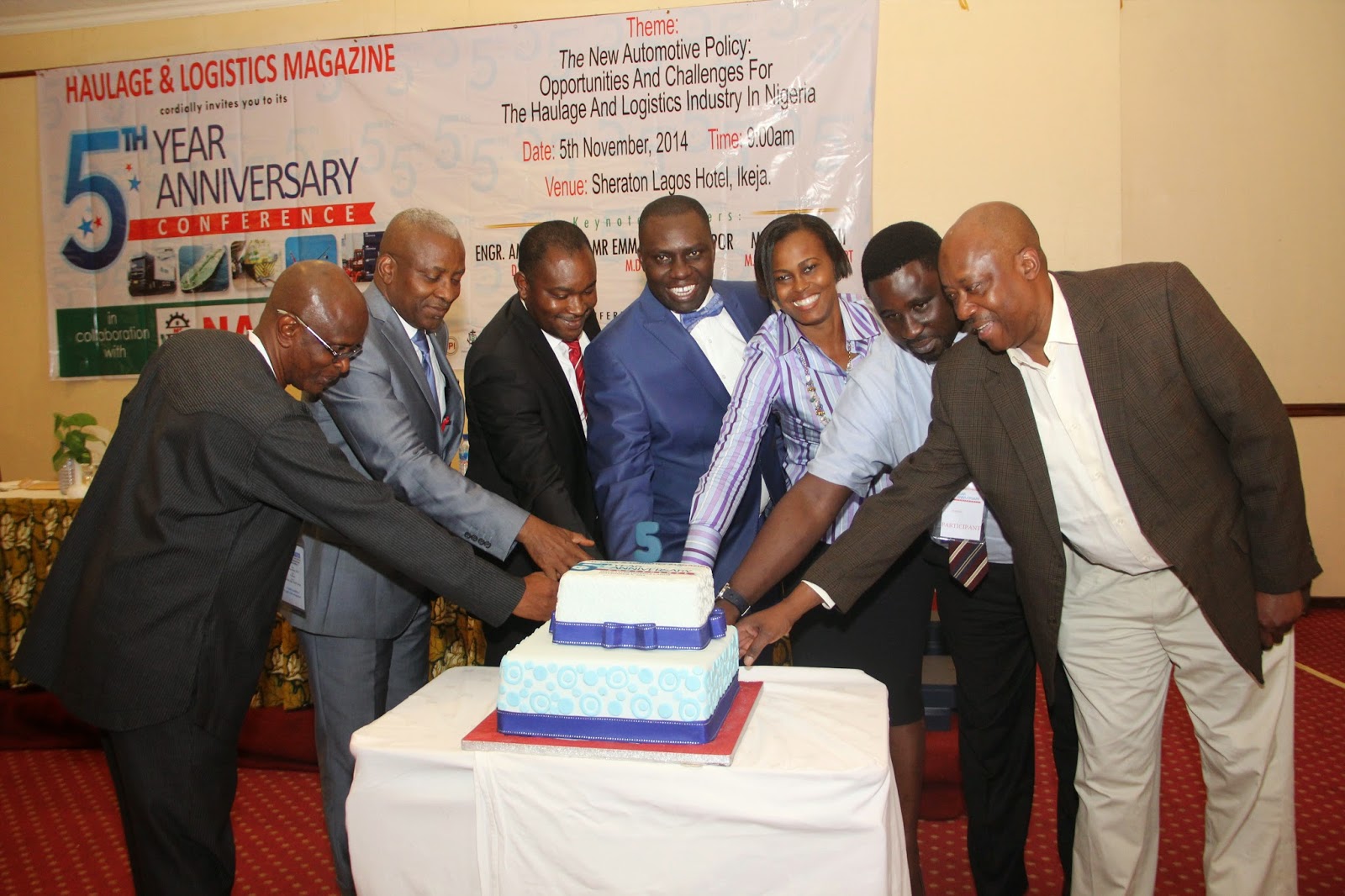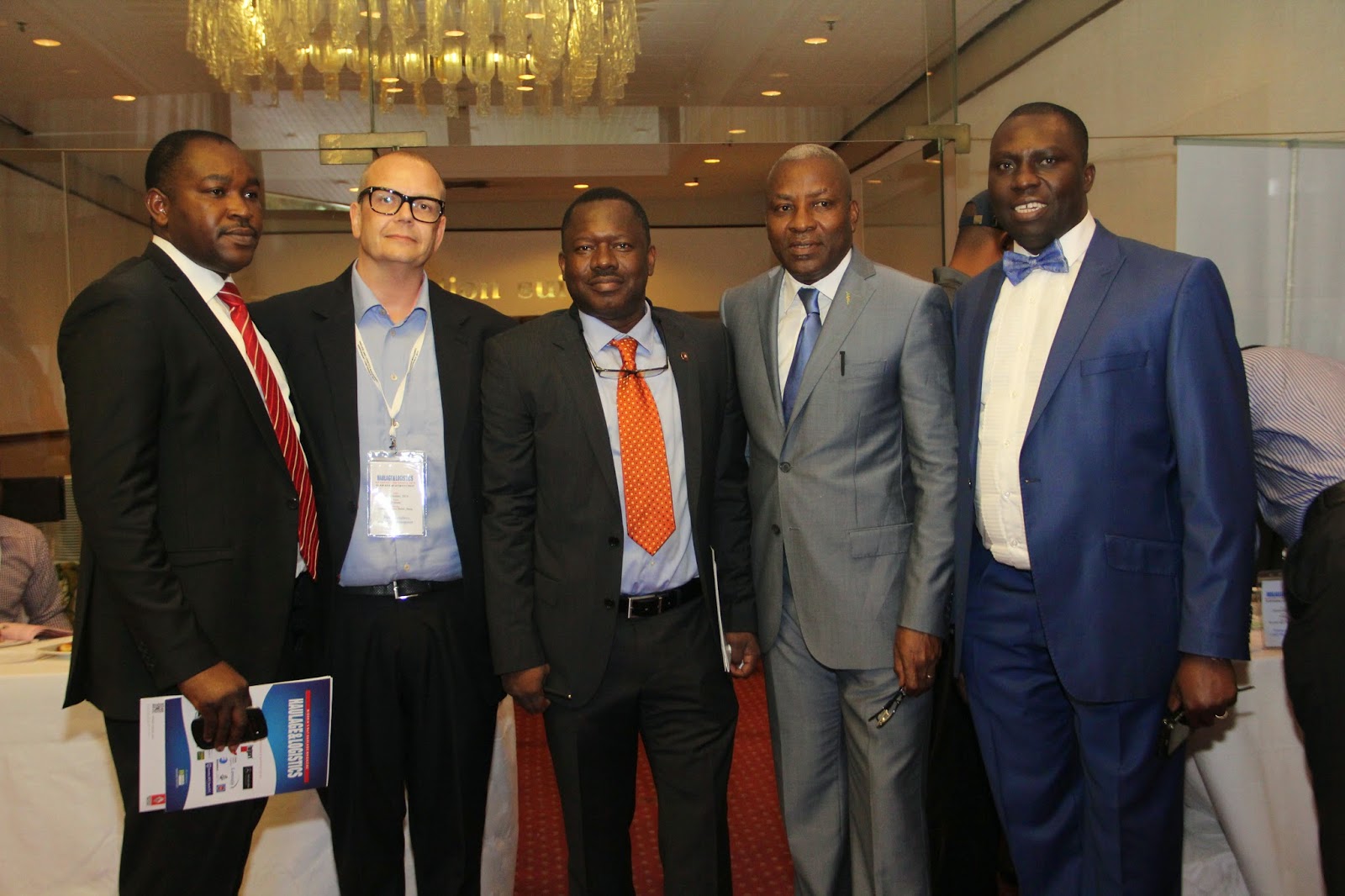Stakeholders in the haulage and logistics sub-sector has called on the Federal
Government to factor in their operational interest as activities of automotive
policy take shape.
They made their views known at the Fifth Anniversary Conference of the Haulage
and Logistics Magazine in Lagos.
Mr Emmanuel Usiakpor, the Managing Director, Joza Global Logistics, said a
review of some challenges faced by the operators was necessary as a way
forward.
The theme of the conference was “The New Automotive Policy: Opportunities and
Challenges for the haulage and logistics industry in Nigeria’’.
Usiakpor said it was necessary that the provisions of the new policy should
address the need for truck drivers’ training institute among other issues, to
ensure complete success of the policy.
“There should be a drivers’ training institute for adequate training of
drivers because most of them graduated from being just motor-boys.
“With improved technology in the new trucks being built for today, there is
need for a training provision considering the level of our drivers,” he
said.
Usiakpor said that part of the operational challenges bordered on the lack of
‘after-sales’ service for technical maintenance of trucks, which had
resulted in additional cost through overseas training.
“It is sad that no one is monitoring a safety policy, which should be
government-driven, considering that policemen check what the vehicle inspection
officers are supposed to check,’’ he said.
Usiakpor noted that the Federal Road Safety Corps’ personnel arrest some
motorists for not using seat belts and ignored vehicles which were not road-worthy.
Also speaking, Mr Frank Nneji, the Managing Director of ABC Transport, said the
challenges facing the haulage and logistics sector were from the external
environment, which demanded government’s attention.
“The major issues are especially those that demand government’s attention,
talking about the conditions of the roads, security, regulation and multiple
taxes.
“These have been very difficult to put a handle on.
“Those within the environment are within the control of the operators. They
are things you could do, like carry out maintenance of your vehicles, manage
your drivers and the rest,” he said.
Nneji, however, noted that the concern of the sub-sector in the automotive
policy would be the affordability, quality and standard of the vehicles.
The stakeholders also raised concerns about how the vehicle finance scheme
would benefit operators who want to patronise the made-in-Nigeria vehicles.
They expressed reservations about obtaining loans from local banks because,
according to them, the local banks have not shown confidence in the
locally-manufactured vehicles.
The stakeholders also wanted consideration to include assembly plants that
would stand the test of time and still remain active in business to service the
industry needs.
Earlier, in his keynote address, Mr Aminu Jalal, the Director-General of the
National Automotive Council (NAC), assured stakeholders that the policy was
value-driven for the improvement of the sector.
“I want to assure you that the new automotive plan will give a new lease of
life to this important industry, because the industry drives the development of
so many industries, including haulage and logistics,” he said.
Jalal said that the automotive industrial development plan was developed after
extensive consultations with existing local automobile manufacturers and
international equipment manufacturers to ensure the best results for the
industry.
He said that within the Nigeria Industrial Revolution Plan, the automobile
sector has been identified as an industry group for its large market,
labour-intensive characteristics.
According to him, since the announcement of the policy, the 14 existing
assemblage plants which were at the verge of closure have received a new lease
of life and obtained renewed partnership agreement.
Mr Lukmon Mamudu, a director at the NAC, also assured that the
made-in-Nigeria vehicles would be at the same rate and of standard quality as
any imported vehicle.
“We have a process to ensure that the companies set up plants that will
benefit businesses in Nigeria. We consider their plant location and ensure the
registration is competitive.
“And to encourage them, those who register with the Federal Ministry of
Finance as manufacturers can bring in their equipment easily.
“NAC is setting up three laboratories, to carry out scientific tests on the
products from the factories. As components are brought in as CKD, you must have
certification.
“On maintenance, we have signed agreement with Bosch to partner for training,
maintenance and repairs,” Mamudu said.
He said that financing had been taken care of with the agreement signed with
the West Bank of South Africa, which is renowned for vehicle financing.
Mr Alfred Okugbeni, the publisher of Haulage and Logistics magazine, and convener
of the event,expressed optimism about the success of the automotive policy and
its impact on haulage the sub-sector.
He said it was important to start small and grow, than to continue to depend on
importation of vehicles.
“We cannot continue to depend on imported vehicles, we have to start
somewhere, and be able to create employment.
“For every vehicle that is brought in, we are employing some people out there.
So, it is a good initiative and I believe that it is very important to start
somewhere.
“We may not start in the way the more developed countries started, but we can
grow,” he said.


